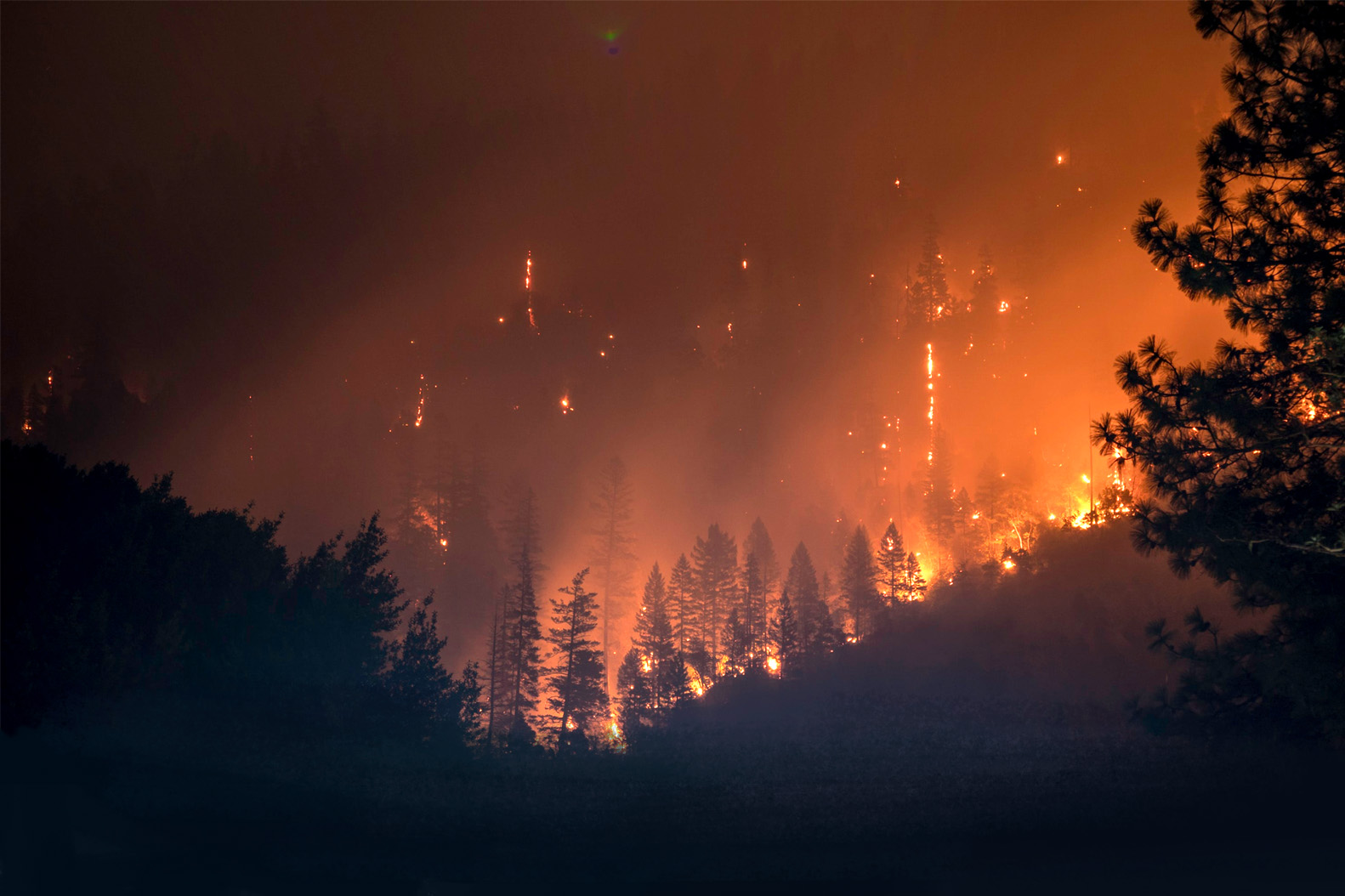Australia is burning.
An unprecedented season of bushfires has laid waste to over 6 million hectares, wiping out half a billion animals and livestock, and devastating native ecosystems and farmlands in its wake.
The destructive toll on the environment is incomprehensible, and as the tragedy has spilled over into our human communities, each new reported death compounds our communal grief.
Nothing on this scale has happened before. States of emergency. Mass evacuations. Military actively supporting state fire services. An army of volunteer rural firefighters exhausted after constant deployment to battle the blazes.
And as unquenchable flames spread across our coastlines, their smoky shadows shrouded our great cities as omens of the impending threat. Our collective psyche has been scarred; our national soul humbled.
Has God walked off the job? Is suffering evidence of the absence of God’s love?
As the media and public conversation seem caught up on the policies and powerlessness of our political leaders, where everyone looks for someone to blame across the aisle, my heart aches for those with a different question: Where is God?
For if faulty governance has exacerbated these dreadful conditions, even as our most courageous fight an unwinnable war against nature, what charges should be laid at God’s door as the one who is sovereign over nature?
WHY IS HEAVEN SILENT WHILE OUR EARTH IS SCORCHED?
One letter to the editor published in the Sydney Morning Herald cited these bushfires as proof of God’s non-existence, raising the ancient problem of evil first attributed to the Greek philosopher, Epicurus. Either God is all-powerful, or He is all-loving, but He cannot be both.
For the portrait of a God with the power to stop these walls of fire and even an ounce of compassion for the creatures in their path simply cannot be squared with the terrifying images of death and destruction beamed around the world. People outside the church tend to conclude that either God isn’t there, or that He doesn’t care.
So how does the Christian story speak to our vulnerability at the hands of nature? Has God walked off the job? Is suffering evidence of the absence of God’s love?
Believe me when I say I feel the force of these questions.
As someone who couldn’t make sense of God myself due to the hurdle of tragedy in my past, no philosopher can wave the magic wand of a logical syllogism to take away the strength of our sense of protest. And yet, as one who brought my questions to the Christian story, I found something that over time melted my skepticism.
The Bible dignified the depth of my protest to the pain of this world, giving it stronger voice than I myself had found. Entire books of the Bible are filled with lament and grief, or with people wrestling with how God fits into the picture of suffering. And into this mess, God speaks. Heaven is not silent.
If you’ve ever wondered how God feels about our suffering, look no further than Jesus of Nazareth. He claimed to be the invisible God made visible; eternal spirit become human flesh. And in the face of tragedy, suffering the loss of his dear friend, we’re told that Jesus wept (John 11:35).
Try to grasp the gravity of those words. The Creator who sprung vast galaxies into space also cares intimately, even viscerally, for our sufferings here below. Jesus sobbed at the loss of his friend, and didn’t discourage the full force of the questions and doubts of two grieving sisters (John 11).
Wherever you are, whatever state you’re in, you do not grieve alone. And if you find yourself moved with compassion for those whose world is now ashes, know that you are animated by the very heart of God.
When I came with my questions I also found in the Christian story an explanation for why we feel an innate injustice in the face of suffering, namely, that this is not the way things ought to be.
Humans were designed to be gardeners and governors of God’s good world. We were given the task of taming a wild creation beyond the borders of Eden, working together to cultivate God’s planet, building cultures, framing beauty, and making Earth fruitful. The Bible’s explanation for human suffering as a whole, whether at the hands of others or at the mercy of nature, is that something went wrong.
Genesis describes a space-time fall, where humans broke faith with God and fell from our high calling as his image-bearers, whereby everything became broken. God didn’t walk off the job. We did.
And the planet we were given to govern felt the effects. Creation is now under a curse, where humans live at odds with creation, subject to the destruction and death we are now witnessing. Our suffering at the hands of nature feels wrong, and it should. This is not the way things were supposed to be.
SO WHY DOESN’T GOD DO SOMETHING?
In the last pages of the Bible I found the promise that one day Jesus will return to set everything right. He will “restore” all things – the tragic events that transpired after the fall will not be undone in the sense that they’re erased. That will do a great disservice to the dignity of peoples’ suffering.
But our tears will be wiped away by the very hand of God as suffering and death come to an end (Revelation 21:4). We need this hope – that death can give way to resurrection life.
Add to this the serious reflection upon our responsibility to care for creation, and the groundswell of compassion and support that has bound us together in new ways, and it seems God is not unable to bring meaning even from horrible circumstances.
Wherever you are, whatever state you’re in, you do not grieve alone.
When I was questioning God’s whereabouts in my suffering, to my surprise, I found a God who was there.
At the heart of the Christian story is a gruesome death where Jesus was betrayed, abused, beaten, flayed, spat upon and crucified. The Gospels could have equally told the story of Jesus’ charred remains in the place of his pulverised body and the point would remain the same.
If we are ever tempted to believe that God doesn’t care about us or that heaven is silent, the Cross towers above our skepticism. For it is in the ashes of tragedy that we come face-to-face with divine love, as the God who bears our scars for all eternity draws near to speak to our true needs.
This article was first published on RZIM and has been republished with permission.
- How do you feel about what’s happening in Australia? Would you remember to pray for the nation?
- Have you ever felt that God doesn’t care about suffering? Why?
- Is suffering evidence of the absence of God’s love?










